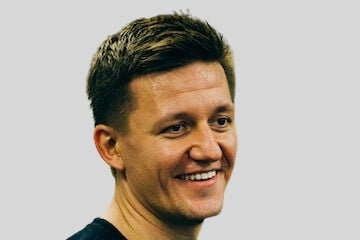Roman Zrazhevskiy is a survivalist of a sort. His company, Mira Safety, sells protective gear for seemingly existential events such as nuclear attacks or chemical warfare. He calls the threat of such events “red alerts,” when geopolitical crises prompt fear into consumers.
Zrazhevskiy first appeared on this podcast in 2021. In our recent conversation, he shared the evolution of Mira Safety, staffing strategies, growth plans, and more.
Our entire audio is embedded below. The transcript is edited for clarity and length.
Eric Bandholz: Give us a rundown of your business.
Roman Zrazhevskiy: I own Mira Safety. We focus on protection from chemical, biological, radiological, and nuclear threats. We sell directly to consumers through ecommerce, offering products like gas masks and hazmat suits. We also sell to government agencies and wholesale customers.
We launched Mira Safety in 2018, but I’ve been in the industry since 2013 with Ready to Go Survival, selling respirators without a lot of initial success. Then the Ebola scare happened in 2015. We call such events “red alerts,” geopolitical issues that lead people to buy emergency equipment. Another example was in 2017 when tensions arose between Donald Trump and Kim Jong Un of North Korea. That led to a surge of $50,000 in sales in just one week.
A red alert creates a massive uptick in demand. More recently, the Ukraine war in 2022 was our biggest red alert. Many thought the conflict might expand beyond Ukraine, possibly leading to a large-scale war between the East and West. Thankfully, that didn’t happen, but it sparked a wave of purchases.
Interestingly, as these events happen, people become a little more jaded. There’s a sense that each red alert doesn’t quite provoke the same fear as before. But if something catastrophic happened, like Russia attacking Poland, we’d likely see another massive spike in demand.
Bandholz: Your business thrives when the world is in crisis. How do you cope with that?
Zrazhevskiy: I don’t wrestle with it. We provide life-saving products. Our mission is to protect people, not hurt them. We’re more like an insurance provider. It’s a necessary service. We’re helping people prepare for the unimaginable, and I’m proud of that.
Bandholz: How do you manage between red alerts?
Zrazhevskiy: We keep things lean, avoid excessive spending, and keep reserves in case of a downturn. My rule is to set aside at least one year’s operating funds. Even if sales drop or a red alert doesn’t occur for a while, we can still run the business without making drastic cuts.
I’m conservative when it comes to debt. We don’t like borrowing money and take risks only with inventory and product launches. Our only significant debt is the mortgage on our headquarters building, and we plan to pay it off early.
Excess leverage can destroy a business, so I avoid it. I’ve seen many entrepreneurs go under because they borrowed too much and couldn’t recover when things didn’t go as planned. I prefer slow, steady, bootstrapped growth.
Bandholz: You’ve invested heavily into your physical workplace.
Zrazhevskiy: A strong company culture is important to us. We want people to work in the same building. Remote work has its advantages, but we’ve had issues with it. So, we decided to have most of our team in one location. The amenities, like saunas and red light therapy, are part of our wellness philosophy.
When employees feel good, they perform better. If our team is happy, healthy, and enjoys being here, they’ll likely be more productive and stay longer. Plus, I enjoy these things, and I want to share that with my team.
Bandholz: What are your long-term goals for the business?
Zrazhevskiy: Our mission is to protect people from the worst threats. That’s what drives us. We’re releasing more products, especially for children. There’s a lack of protective equipment for them. We’re one of a few companies offering children’s respirators. We provide protection for everyday families.
We’re also bringing a respirator assembly to the U.S. That’s our next big move. We’ve already ordered the machines, and once we start assembling here, we’ll apply for the certification from the National Institute for Occupational Safety and Health. That will open doors to more government contracts and allow us to sell to private companies that require NIOSH-rated products.
Planning for five years is hard, especially in a business like this. I’m also still learning, especially about manufacturing and leadership. There’s always room for improvement.
Bandholz: Where can people buy your products?
Zrazhevskiy: Our site is MiraSafety.com. We’re on X, Instagram, and YouTube.




